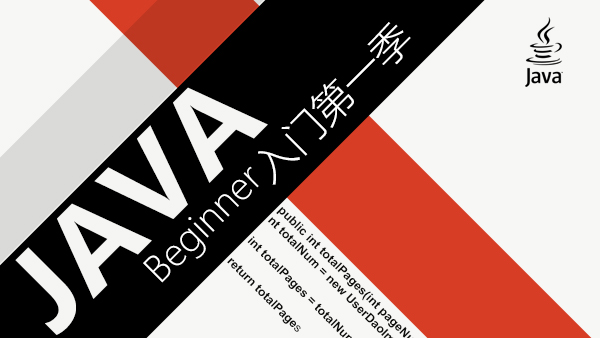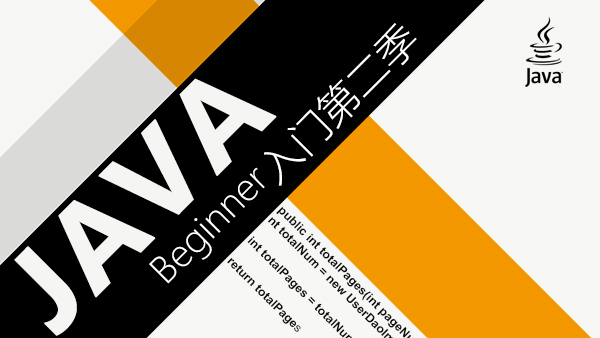如果要学习spring,那么什么是框架,spring又是什么呢?学习spring中的ioc和bean,以及aop,IOC,Bean,AOP,(配置,注解,api)-springFramework.
效果
各种学习的知识点:
spring expression languagespring integrationspring web flowspring securityspring dataspring batch
spring网站:
http://spring.io/
效果
http://spring.io/projects/spring-framework
效果
spring是一种开源框架,是为了解决企业应用开发的复杂性问题而创建的,现在的发展已经不止于用于企业应用了.
spring是一种轻量级的控制反转(IoC)和面向切面(AOP)的容器框架.
一句名言:spring带来了复杂的javaee开发的春天.
jdbc orm
oxm jms
transactions
websocket servlet
web portlet
aop aspects instrumentation messaging
beans core context spel
springmvc+spring+hibernate/ibatis->企业应用
什么是框架,为什么要用框架:
什么是框架:
效果
效果
框架就是别人制定好的一套规则和规范,大家在这个规范或者规则下进行工作,可以说,别人盖好了楼,让我们住.
效果
效果
软件框架是一种半成品,具有特定的处理流程和控制逻辑,成熟的,可以不断升级和改进的软件.
使用框架重用度高,开发效率和质量的提高,容易上手,快速解决问题.
spring ioc容器
效果
接口,是用于沟通的中介物的,具有抽象化,java中的接口,就是声明了哪些方法是对外公开的.
面向接口编程,是用于隐藏具体实现的组件.
案例:
// 声明一个接口public interface DemoInterface{ String hello(String text); // 一个hello方法,接收一个字符串型的参数,返回一个`String`类型.}// 实现public class OneInterface implements DemoInterface{ @Override
public String hello(String text){ return "你好啊: " + text;
}
}// 测试类public class Main{ public static void main(String[] args){
DemoInterface demo = new OneInterface();
System.out.println(demo.hello("dashucoding");
}
}
什么是IOC,IOC是控制反转,那么什么控制反转,控制权的转移,应用程序不负责依赖对象的创建和维护,而是由外部容器负责创建和维护.
<?xml version="1.0" encoding="UTF-8"?><beans xmlns="http://www.springframework.org/schema/beans"
xmlns:xsi="http://www.w3.org/2001/XMLSchema-instance"
xsi:schemaLocation="http://www.springframework.org/schema/beans
http://www.springframework.org/schema/beans/spring-beans.xsd">
<bean id="oneInterface" class="com.ioc.interfaces.OneInterfaceImpl"></bean></beans>
spring.xml
测试:
import org.junit.Test;@RunWith(BlockJUnit4Cla***unner.class)
public class TestOneInterface extends UnitTestBase {
public TestOneInterface(){ super("spring.xml");
} @Test
public void testHello(){ OneInterface oneInterface = super.getBean("oneInterface"); System.out.println(oneInterface.hello("dashucoding"));
}
}
单元测试
下载一个包junit-*.jar导入项目中,然后创建一个UnitTestBase类,用于对spring进行配置文件的加载和销毁,所有的单元测试都是继承UnitTestBase的,然后通过它的getBean方法获取想要的对象,子类要加注解@RunWith(BlockJUnit4Cla***unner.class),单元测试方法加注解@Test.
public ClassPathXmlApplicationContext context; public String springXmlpath; public UnitTestBase(){} public UnitTestBase(String springXmlpath){ this.springXmlpath = springXmlpath;
}@Beforepublic void before(){ if(StringUtils.isEmpty(springXmlpath)){
springXmlpath = "classpath*:spring-*.xml";
} try{
context = new ClassPathXmlApplicationContext(springXmlpath.split("[,\\s]+"));
context.start();
}catch(BeansException e){
e.printStackTrace();
}
} @After
public void after(){
context.destroy();
} @SuppressWarnings("unchecked") protected <T extends Object> T getBean(String beanId){ return (T)context.getBean(beanId);
} protected <T extends Object> T getBean(Class<T> clazz){ return context.getBean(clazz);
}
}
bean容器:
org.springframework.beans和org.springframework.context
BeanFactory提供配置结构和基本功能,加载并初始化Bean,ApplicationContext保存了Bean对象.
// 文件FileSystemXmlApplicationContext context = new FileSystemXmlApplicationContext("D:/appcontext.xml");// ClasspathClassPathXmlApplicationContext context = new ClassPathXmlApplicationContext("classpath:spring-context.xml");// Web应用<listener>
<listener-class>org.springframework.web.context.ContextLoaderListener</listener-class>
</listener>
<servlet>
<servlet-name>context</servlet-name>
<servlet-class>org.springframework.web.context.ContextLoaderServlet</servlet-class>
<load-on-startup>1</load-on-startup>
</servlet>
spring注入:启动spring加载bean的时候,完成对变量赋值的行为.注入方式:设值注入和构造注入.
// 设值注入<?xml version="1.0" encoding="UTF-8"?><beans xmlns="http://www.springframework.org/schema/beans"
xmlns:xsi="http://www.w3.org/2001/XMLSchema-instance"
xsi:schemaLocation="http://www.springframework.org/schema/beans
http://www.springframework.org/schema/beans/spring-beans.xsd">
<bean id="iService" class="com.service.iServiceImpl">
<property name="iDAO" ref="DAO"/>
</bean>
<bean id="DAO" class="com.iDAOImpl"></bean></beans>
// 构造注入<?xml version="1.0" encoding="UTF-8"?><beans xmlns="http://www.springframework.org/schema/beans"
xmlns:xsi="http://www.w3.org/2001/XMLSchema-instance"
xsi:schemaLocation="http://www.springframework.org/schema/beans
http://www.springframework.org/schema/beans/spring-beans.xsd">
<bean id="iService" class="com.service.iServiceImpl">
<constructor-arg name="DAO" ref="DAO"/>
<property name="injectionDAO" ref="injectionDAO"></property>
</bean>
<bean id="DAO" class="com.iDAOImpl"></bean></beans>
spring注入:
<?xml version="1.0" encoding="UTF-8"?><beans xmlns="http://www.springframework.org/schema/beans"
xmlns:xsi="http://www.w3.org/2001/XMLSchema-instance"
xsi:schemaLocation="http://www.springframework.org/schema/beans
http://www.springframework.org/schema/beans/spring-beans.xsd">
<bean id="injectionService" class="com.injection.service.InjectionServiceImpl"></bean>
<bean id="injectionDAO" class="com.ijection.dao.InjectionDAOImpl"></bean></beans>
// 接口-业务逻辑public interface InjectionService { public void save(String arg);
}
// 实现类-处理业务逻辑public class InjectionServiceImpl implements InjecionService { private InjectionDAO injectionDAO; public InjectionServiceImpl(InjectionDAO injectionDAO) { this.injectionDAO = injectionDAO;
} public void setInjectionDAO(InjectiionDAO injectionDAO) { this.injectionDAO = injectionDAO;
} public void save(String arg) {
System.out.println("接收" + arg);
arg = arg + ":" + this.hashCode();
injectionDAO.save(arg);
}
}
// 接口-数据库-调用DAOpublic interface InjectionDAO {
// 声明一个方法
public void save(String arg);
}
// 实现类public class InjectionDAOImpl implements InjectionDAO { // 实现接口中的方法
public void save(String arg) {
System.out.println("保存数据" + arg);
}
}
// 测试import org.junit.Test;@RunWith(BlockJUnit4Cla***unner.class)
public class TestInjection extends UnitTestBase {
public TestInjection(){ super("classpath:spring-injection.xml");
} @Test
public void testSetter(){ InjectionService service = super.getBean("injectionService");
service.save("保存的数据");
} @Test
public void testCons() { InjectionService service = super.getBean("injectionService");
service.save("保存的数据");
}
}
bean的配置:
id:id是整个ioc容器中,bean的标识class:具体要实例化的类
scope:作用域constructor arguments:构造器的参数
properties:属性
autowiring mode:自动装配的模式
lazy-initialization mode:懒加载模式Initialization/destruction method:初始化和销毁的方法
作用域
singleton:单例prototype:每次请求都创建新的实例request:每次http请求都创建一个实例有且当前有效session:同上
spring bean配置之Aware接口:spring中提供了以Aware结尾的接口,为spring的扩展提供了方便.
bean的自动装配autowiring
no是指不做任何操作
byname是根据自己的属性名自动装配
byType是指与指定属性类型相同的bean进行自动装配,如果有过个类型存在的bean,那么就会抛出异常,不能使用byType方式进行自动装配,如果没有找到,就不什么事都不会发生Constructor是与byType类似,它是用于构造器参数的,如果没有找到与构造器参数类型一致的bean就会抛出异常
spring bean配置的resource
resources:
urlresource是url的资源
classpathresource是获取类路径下的资源
filesystemresource是获取文件系统的资源
servletcontextresource是servletcontext封装的资源
inputstreamresource是针对输入流封装的资源
bytearrayresource是针对字节数组封装的资源
public interface ResourceLoader{ Resource getResource(String location);
}
ResourceLoader
classpath: Loaded from the classpath;file: Loaded as a URL, from the filesystem;http: Loaded as a URL;
案例:
public class MResource implements ApplicationContextAware{ private ApplicationContext applicationContext; @Override
public void setApplicationContext(ApplicationContext applicationContext) throws BeansException { this.applicationContext = applicationContext;
} public void resource(){
Resource resource = applicationContext.getResource("classpath:config.txt");
System.out.println(resource.getFilename());
}
}
// 单元测试类import com.test.base.UnitTestBase;@RunWith(BlockJUnit4Cla***unner.class)
public class TestResource extends UnitTestBase {
public TestResource() { super("classpath:spring-resource.xml");
} @Test
public void testResource() { MResource resource = super.getBean("mResource"); try{
resource.resource();
}catch(IOException e){
e.printStackTrace();
}
}
}
<?xml version="1.0" encoding="UTF-8"?><beans xmlns="http://www.springframework.org/schema/beans"
xmlns:xsi="http://www.w3.org/2001/XMLSchema-instance"
xsi:schemaLocation="http://www.springframework.org/schema/beans
http://www.springframework.org/schema/beans/spring-beans.xsd">
<bean id="moocResource" class="com.resource.MResource"></bean></beans>
bean的定义与学习:
<context:annotation-config/>@Component,@Repository,@Service,@Controller@Required,@Autowired,@Qualifier,@Resource
@Configuration,@Bean,@Import,@DependsOn@Component,@Repository,@Service,@Controller
@Repository用于注解DAO类为持久层
@Service用于注解Service类为服务层
@Controller用于Controller类为控制层
元注解Meta-annotations是spring提供的注解可以作为字节的代码叫元数据注解,处理value(),元注解可以有其他的属性.
spring可以自动检测和注册bean
@Servicepublic class SimpleMovieLister { private MovieFinder movieFinder; @Autowired
public SimpleMovieLister(MovieFinder movieFinder){ this.movieFinder = movieFinder;
}
}
@Repositorypublic class JpaMovieFinder implements MovieFinder {}
类的自动检测以及Bean的注册
<?xml version="1.0" encoding="UTF-8"?><beans xmlns="http://www.springframework.org/schema/beans"
xmlns:xsi="http://www.w3.org/2001/XMLSchema-instance"
xsi:schemaLocation="http://www.springframework.org/schema/beans
http://www.springframework.org/schema/beans/spring-beans.xsd">
<context:component-scan base-package="org.example"/></beans>
类被自动发现并注册bean的条件:
用@Component,@Repository,@Service,@Controller注解或者使用@Component的自定义注解
@Required用于bean属性的setter方法
@Autowired注解
private MovieFinder movieFinder;@Autowiredpublic void setMovieFinder(MovieFinder movieFinder) { this.movieFinder = movieFinder;
}
用于构造器或成员变量@Autowiredprivate MovieCatalog movieCatalog;private CustomePreferenceDap customerPreferenceDao;@Autowiredpublic MovieRecommender(CustomerPreferenceDao customerPreferenceDao) { this.customerPreferenceDao = customerPreferenceDao;
}
@Autowired注解
使用这个注解,如果找不到bean将会导致抛出异常,可以使用下面代码避免,每个类只能有一个构造器被标记为required=true.
public class SimpleMovieLister { private MovieFinder movieFinder; @Autowired(required=false) public void setMovieFinder(MovieFinder movieFinder){ this.movieFinder = movieFinder;
}
}
spring是一个开源框架,spring是用j2ee开发的mvc框架,spring boot呢就是一个能整合组件的快速开发框架,因为使用maven管理,所以很便利。至于spring cloud,就是微服务框架了。
spring是一个轻量级的Java开发框架,是为了解决企业应用开发的复杂性而创建的框架,框架具有分层架构的优势.
spring这种框架是简单性的,可测试性的和松耦合的,spring框架,我们主要是学习控制反转IOC和面向切面AOP.
// 知识点spring iocspring aopspring ormspring mvcspring webservicespring transactionsspring jmsspring dataspring cachespring bootspring securityspring schedule
spring ioc为控制反转,控制反向,控制倒置,
效果
效果
效果
Spring容器是 Spring 框架的核心。spring容器实现了相互依赖对象的创建,协调工作,对象只要关系业务逻辑本身,IOC最重要的是完成了对象的创建和依赖的管理注入等,控制反转就是将代码里面需要实现的对象创建,依赖的代码,反转给了容器,这就需要创建一个容器,用来让容器知道创建对象与对象的关系.(告诉spring你是个什么东西,你需要什么东西)
xml,properties等用来描述对象与对象间的关系
classpath,filesystem,servletContext等用来描述对象关系的文件放在哪里了.
控制反转就是将对象之间的依赖关系交给了容器管理,本来是由应用程序管理的对象之间的依赖的关系.
spring ioc体系结构
BeanFactoryBeanDefinition
spring ioc是spring的核心之一,也是spring体系的基础,在spring中主要用户管理容器中的bean.spring的IOC容器主要使用DI方式实现的.BeanFactory是典型的工厂模式,ioc容器为开发者管理对象间的依赖关系提供了很多便利.在使用对象时,要new object()来完成合作.ioc:spring容器是来实现这些相互依赖对象的创建和协调工作的.(由spring`来复杂控制对象的生命周期和对象间的)
所有的类的创建和销毁都是由spring来控制,不再是由引用它的对象了,控制对象的生命周期在spring.所有对象都被spring控制.
ioc容器的接口(自己设计和面对每个环节):
BeanFactory工厂模式
public interface BeanFactory {
String FACTORY_BEAN_PREFIX = "&";
Object getBean(String name) throws BeansException; Object getBean(String name, Class requiredType) throws BeansException; boolean containsBean(String name);
boolean isSingleton(String name) throws NoSuchBeanDefinitionException; Class getType(String name) throws NoSuchBeanDefinitionException;
String[] getAliases(String name);
}
BeanFactory三个子类:ListableBeanFactory,HierarchicalBeanFactory和AutowireCapableBeanFactory,实现类是DefaultListableBeanFactory.
控制反转就是所有的对象都被spring控制.ioc动态的向某个对象提供它所需要的对象.通过DI依赖注入来实现的.如何实现依赖注入ID,在Java中有一特性为反射,它可以在程序运行的时候进行动态的生成对象和执行对象的方法,改变对象的属性.
public static void main(String[] args){
ApplicationContext context = new FileSystemXmlApplicationContext("applicationContext.xml");
Animal animal = (Animal)context.getBean("animal");
animal.say();
}
// applicationContext.xml<bean id="animal" class="com.test.Cat"> <property name="name" value="dashu"/></bean>
public class Cat implements Animal { private String name; public void say(){
System.out.println("dashu");
} public void setName(String name){ this.name = name;
}
}
public interface Animal { public void say();
}
// beanprivate String id;private String type;private Map<String,Object> properties=new HashMap<String, Object>();
<bean id="test" class="Test"> <property name="testMap">
</property></bean>
public static Object newInstance(String className) {
Class<?> cls = null; Object obj = null; try {
cls = Class.forName(className);
obj = cls.newInstance();
} catch (ClassNotFoundException e) { throw new RuntimeException(e);
} catch (InstantiationException e) { throw new RuntimeException(e);
} catch (IllegalAccessException e) { throw new RuntimeException(e);
} return obj;
}
核心是控制反转(IOC)和面向切面(AOP),spring是一个分层的JavaSE/EE的轻量级开源框架.
web:
struts,spring-mvc
service:
spring
dao:
mybatis,hibernate,jdbcTemplate,springdata
spring体系结构
ioc
// 接口public interface UserService { public void addUser();
}// 实现类public class UserServiceImpl implements UserService { @Override
public void addUser(){
System.out.println("dashucoding");
}
}
配置文件:
<?xml version="1.0" encoding="UTF-8"?><beans xmlns="http://www.springframework.org/schema/beans"
xmlns:xsi="http://www.w3.org/2001/XMLSchema-instance"
xsi:schemaLocation="http://www.springframework.org/schema/beans
http://www.springframework.org/schema/beans/spring-beans.xsd">
<bean id="userServiceId" class="com.dashucoding.UserServiceImpl"></bean></beans>
测试:
@Testpublic void demo(){
String xmlPath = "com/beans.xml";
ApplicationContext applicationContext = new ClassPathXmlApplicationContext(xmlPath);
UserService userService = (UserService) applicationContext.getBean("userServiceId");
userService.addUser();
}
依赖注入:
class DemoServiceImpl{
private daDao daDao;
}
创建service实例,创建dao实例,将dao设置给service.
接口和实现类:
public interface BookDao { public void addBook();
}public class BookDaoImpl implements BookDao { @Override
public void addBook() {
System.out.println("dashucoding");
}
}
public interface BookService { public abstract void addBook();
}public class BookServiceImpl implements BookService { private BookDao bookDao; public void setBookDao(BookDao bookDao) { this.bookDao = bookDao;
} @Override
public void addBook(){ this.bookDao.addBook();
}
}
配置文件:
<beans xmlns="http://www.springframework.org/schema/beans"
xmlns:xsi="http://www.w3.org/2001/XMLSchema-instance"
xsi:schemaLocation="http://www.springframework.org/schema/beans
http://www.springframework.org/schema/beans/spring-beans.xsd">
<bean id="bookServiceId" class="com.BookServiceImpl">
<property name="bookDao" ref="bookDaoId"></property>
</bean>
<bean id="bookDaoId" class="com.BookDaoImpl"></bean></beans>
测试:
@Testpublic void demo(){
String xmlPath = "com/beans.xml";
ApplicationContext applicationContext = new ClassPathXmlApplicationContext(xmlPath);
BookService bookService = (BookService) applicationContext.getBean("bookServiceId");
bookService.addBook();
}
IDE建立Spring项目
File—>new—>project—>Spring
spring
// Server.javapublic class Server {
privete String name; public void setName(String name){ this.name = name;
} public void putName(){
System.out.println(name);
}
}
// Main.javapublic class Main{ public static void main(String[] args){
ApplicationContext context = new ClassPathXmlApplicationContext("spring-config.xml");
Server hello = (Server)context.getBean("example_one");
hello.putName();
}
}
spring-config.xml:
<beans xmlns="http://www.springframework.org/schema/beans"
xmlns:xsi="http://www.w3.org/2001/XMLSchema-instance"
xsi:schemaLocation="http://www.springframework.org/schema/beans
http://www.springframework.org/schema/beans/spring-beans.xsd">
<bean id="example_one" class="Server">
<property name="name" value="达叔小生"></property>
</bean></beans>
使用Maven来声明Spring库.Maven是一个项目管理的工具,maven提供了开发人员构建一个完整的生命周期框架.Maven的安装和配置,需要的是JDK 1.8,Maven,Windows,配置jdk,JAVA_HOME变量添加到windows环境变量.下载Apache Maven,添加 M2_HOME 和 MAVEN_HOME,添加到环境变量PATH,值为%M2_HOME%\bin.执行mvn –version命令来显示结果.
Maven启用代理进行访问,找到文件路基,找到/conf/settings.xml,填写代理,要阿里的哦.
Maven中央存储库地址:
https://search.maven.org/
效果
// xml<dependency>
<groupId>org.jvnet.localizer</groupId>
<artifactId>localizer</artifactId>
<version>1.8</version></dependency>
// pom.xml<repositories>
<repository>
<id>java.net</id>
<url>https://maven.java.net/content/repositories/public/</url>
</repository></repositories>
Maven添加远程仓库:
// pom.xml<project ...><repositories>
<repository>
<id>java.net</id>
<url>https://maven.java.net/content/repositories/public/</url>
</repository>
</repositories></project><project ...>
<repositories>
<repository>
<id>JBoss repository</id>
<url>http://repository.jboss.org/nexus/content/groups/public/</url>
</repository>
</repositories></project>
Maven依赖机制,使用Maven创建Java项目.
<dependency>
<groupId>junit</groupId>
<artifactId>junit</artifactId>
<version>4.11</version>
<scope>test</scope></dependency>
Maven打包:
<project ...>
<modelVersion>4.0.0</modelVersion>
<groupId>com.dashucoding</groupId>
<artifactId>NumberGenerator</artifactId>
<packaging>jar</packaging>
<version>1.0-SNAPSHOT</version>
spring框架:
效果
public interface HelloWorld{ public void sayHello();
}public class SpringHelloWorld implements HelloWorld { public void sayHello(){
System.out.println("Spring Hello");
}
}public class StrutsHelloWorld implements HelloWorld { public void sayHello(){
System.out.println("Struts Hello");
}
}public class HelloWorldServie { private HelloWorld helloWorld; public HelloWorldService(){ this.helloWorld = new StrutsHelloWorld();
}
}
控制反转:
public class HelloWorldService{ private HelloWorld helloWorld; public HelloWorldService(){
} public void setHelloWorld(HelloWorld helloWorld){ this.helloWorld = helloWorld;
} public HelloWorld getHelloWorld(){ return this.helloWorld;
}
}
ioc创建了HelloWorldService对象.
spring->HelloProgram.javahelloworld->HelloWorld.java
HelloWorldService.java
impl实现类->
SpringHelloWorld.java
StrutsHelloWorld.javaresources->beans.xml// 总结
一个spring:HelloProgram.java
接口:
实现类:
资源:beans.xml
// HelloWorld.javapublic interface HelloWorld { public void sayHello();
}// public class HelloWorldService {
private HelloWorld helloWorld; public HelloWorldService(){
} public void setHelloWorld(HelloWorld helloWorld){ this.helloWorld = helloWorld;
} public HelloWorld getHelloWorld(){ return this.helloWorld;
}
}
// SpringHelloWorld.javapublic class SpringHelloWorld implements HelloWorld {
@Override
public void sayHello() {
System.out.println("Spring Hello!");
}
}// StrutsHelloWorld.javapublic class StrutsHelloWorld implements HelloWorld {
@Override
public void sayHello() {
System.out.println("Struts Hello!");
}
}
// HelloProgram.javapublic class HelloProgram { public static void main(String[] args) {
ApplicationContext context = new ClassPathXmlApplicationContext("beans.xml");
HelloWorldService service =
(HelloWorldService) context.getBean("helloWorldService");
HelloWorld hw= service.getHelloWorld();
hw.sayHello();
}
}
// beans.xml<beansxmlns="http://www.springframework.org/schema/beans" xmlns:xsi="http://www.w3.org/2001/XMLSchema-instance"
xsi:schemaLocation="http://www.springframework.org/schema/beans
http://www.springframework.org/schema/beans/spring-beans.xsd">
<bean id="springHelloWorld"
class="com.spring.helloworld.impl.SpringHelloWorld"></bean>
<bean id="strutsHelloWorld"
class="com.spring.helloworld.impl.StrutsHelloWorld"></bean>
<bean id="helloWorldService"
class="com.spring.helloworld.HelloWorldService">
<property name="helloWorld" ref="springHelloWorld"/>
</bean>
</beans>
<propertyname="helloWorld"ref="strutsHelloWorld"/>
ioc创建beans实现类springHelloWorld,创建一个helloWorldService类,beans.xml实现参数导入:
// helloWorldService// springHelloWorld// Hello Program.javaApplicationContext context = new ClassPathXmlApplicationContxt("beans.xml");
HelloWorldService service = (HelloWorldService) context.getBean("helloWorldService");
HelloWorld hw = service.getHelloWorld();
hw.sayHello();// HelloWorldServicepublic class HelloWorldService { private HelloWorld helloWorld; public HelloWorldService(){
} public void setHelloWorld(HelloWorld helloWorld){ this.helloWorld = helloWorld;
} public HelloWorld = getHelloWorld() { return this.helloWorld;
}
}
// beans.xml<bean id="名称" class="路径"/><bean id="helloWorldService"
class="">
<property name="helloWorld" ref="springHelloWorld"/></bean>
spring库地址:
http://maven.springframework.org/release/org/springframework/spring/
hello-world:
public class HelloWorld { private String name; public void setName(String name) { this.name = name;
} public void printHello() {
System.out.println("Spring" + name);
}
}
// xml<beans xmlns="http://www.springframework.org/schema/beans"
xmlns:xsi="http://www.w3.org/2001/XMLSchema-instance"
xsi:schemaLocation="http://www.springframework.org/schema/beans
http://www.springframework.org/schema/beans/spring-beans-3.0.xsd">
<bean id="helloBean" class="">
<property name="name" value="dashu" />
</bean></beans>
// 执行public class App { public static void main(String[] args) {
ApplicationContext context = new ClassPathXmlApplicationContext( "applicationContext.xml");
HelloWorld obj = (HelloWorld) context.getBean("helloBean");
obj.printHello();
}
}
©著作权归作者所有:来自51CTO博客作者Ala6的原创作品,如需转载,请注明出处,否则将追究法律责任

 随时随地看视频
随时随地看视频




